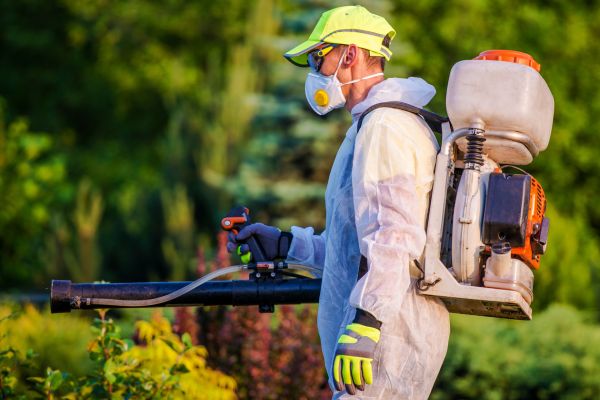Gardening is a labor of love, especially when cultivating a vegetable garden that provides fresh, homegrown produce. However, the battle against pests can sometimes overshadow the joy of gardening. Insects, rodents, and other harmful intruders can quickly damage or destroy months of hard work if left unchecked. Implementing effective pest control for vegetable gardens is crucial for maintaining healthy plants and ensuring a bountiful harvest. By understanding common pests, adopting preventive strategies, and using eco-friendly control methods, gardeners can safeguard their vegetables without resorting to harmful chemicals.
Understanding the Importance of Pest Control in Vegetable Gardens
Vegetable gardens are particularly vulnerable to pests because of their tender plants and nutrient-rich soil. Aphids, caterpillars, beetles, and slugs are just a few of the common culprits that can feast on leaves, roots, and fruits. These pests not only reduce crop yields but can also spread plant diseases, leading to long-term damage. Pest control for vegetable gardens is not about eliminating all insects but rather finding a balance that allows beneficial insects to thrive while harmful pests are kept at bay.
The goal is to create a sustainable garden ecosystem where natural predators, healthy soil, and strong plant varieties work together to deter infestations. When pest control is approached with patience and care, gardeners can avoid unnecessary chemical treatments that may harm both the environment and the quality of the produce.
Identifying Common Garden Pests
A key step in effective pest control for vegetable gardens is the early identification of pests. Each pest leaves distinct signs that can be spotted with careful observation. For instance, holes in leaves often indicate caterpillars or beetles, while sticky residue can signal the presence of aphids. Slugs and snails typically leave silvery trails on the soil and plant surfaces. By learning to recognize these signs, gardeners can act quickly and prevent minor problems from turning into large infestations.
Monitoring plants daily, especially during the early growing season, allows for prompt intervention. Healthy, well-watered plants with proper sunlight are naturally more resistant to pest attacks. This means that consistent care and vigilance are essential components of a successful pest control plan.
Natural Pest Control Methods
Modern gardening emphasizes eco-friendly approaches that minimize the use of harmful chemicals. Natural pest control for vegetable gardens often begins with the use of companion planting. Certain plants, like marigolds, basil, and garlic, can repel insects with their strong scent or chemical properties. By planting these alongside vegetables, gardeners can create a natural barrier against pests.
Another effective method is encouraging beneficial insects such as ladybugs, lacewings, and hoverflies, which naturally prey on harmful pests. Creating a pollinator-friendly environment with flowers and shrubs will attract these helpful creatures. Additionally, homemade sprays made from ingredients like neem oil, soap, or chili pepper can deter pests without harming plants or soil.
Cultural Practices for Preventing Pests
Preventing pest problems is always easier than treating them after an infestation occurs. Practicing good garden hygiene is fundamental for successful pest control in vegetable gardens. Removing dead leaves, weeds, and plant debris reduces hiding places for insects and prevents the spread of disease. Crop rotation is another powerful tool, as planting the same vegetables in the same spot year after year can attract recurring pests.
Proper watering techniques also play a role. Overwatering can lead to fungal diseases that attract pests, while underwatering can weaken plants, making them more vulnerable. Mulching the soil not only retains moisture but also acts as a barrier against crawling insects. Regularly inspecting the underside of leaves and gently washing off pests with water are simple yet effective techniques to keep plants healthy.
Organic Solutions and Safe Treatments
For gardeners who prefer organic practices, there are many safe and effective treatments available. Organic insecticidal soaps, horticultural oils, and bio-pesticides derived from natural sources can target specific pests without harming beneficial insects. These treatments are most effective when used in the early stages of an infestation.
Moreover, handpicking visible pests like caterpillars and beetles can significantly reduce their numbers. While it may seem time-consuming, this approach is highly effective for small gardens. Introducing nematodes to the soil is another organic strategy, as these microscopic organisms can control pests like grubs and root maggots naturally.
Creating a Balanced Garden Ecosystem
The most sustainable approach to pest control for vegetable gardens is to focus on building a balanced ecosystem. Healthy soil enriched with organic compost strengthens plant roots and boosts natural resistance against pests. By cultivating diversity in the garden, such as mixing different vegetables, herbs, and flowers, gardeners reduce the risk of widespread infestations.
Birds and frogs are also natural allies in the fight against pests. Installing bird feeders or small water features can attract these predators, which help control insect populations. Over time, a thriving and balanced garden environment reduces the need for intervention while supporting long-term plant health.
Conclusion: A Proactive Path to a Thriving Garden
Pest control for vegetable gardens is not a one-time effort but an ongoing process of observation, prevention, and gentle intervention. By understanding the behavior of common pests, adopting natural and organic solutions, and creating a resilient garden ecosystem, gardeners can protect their crops while preserving the beauty of nature. The key lies in maintaining balance, as a garden that thrives with beneficial insects, healthy soil, and strong plants will naturally resist pest problems.
A well-maintained vegetable garden rewards its caretaker with fresh, nutritious produce and the satisfaction of knowing that every tomato, pepper, or cucumber was grown with care. With thoughtful pest control strategies, the garden becomes not just a source of food but a vibrant sanctuary of life and growth.




